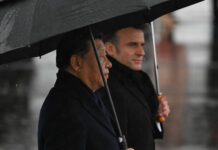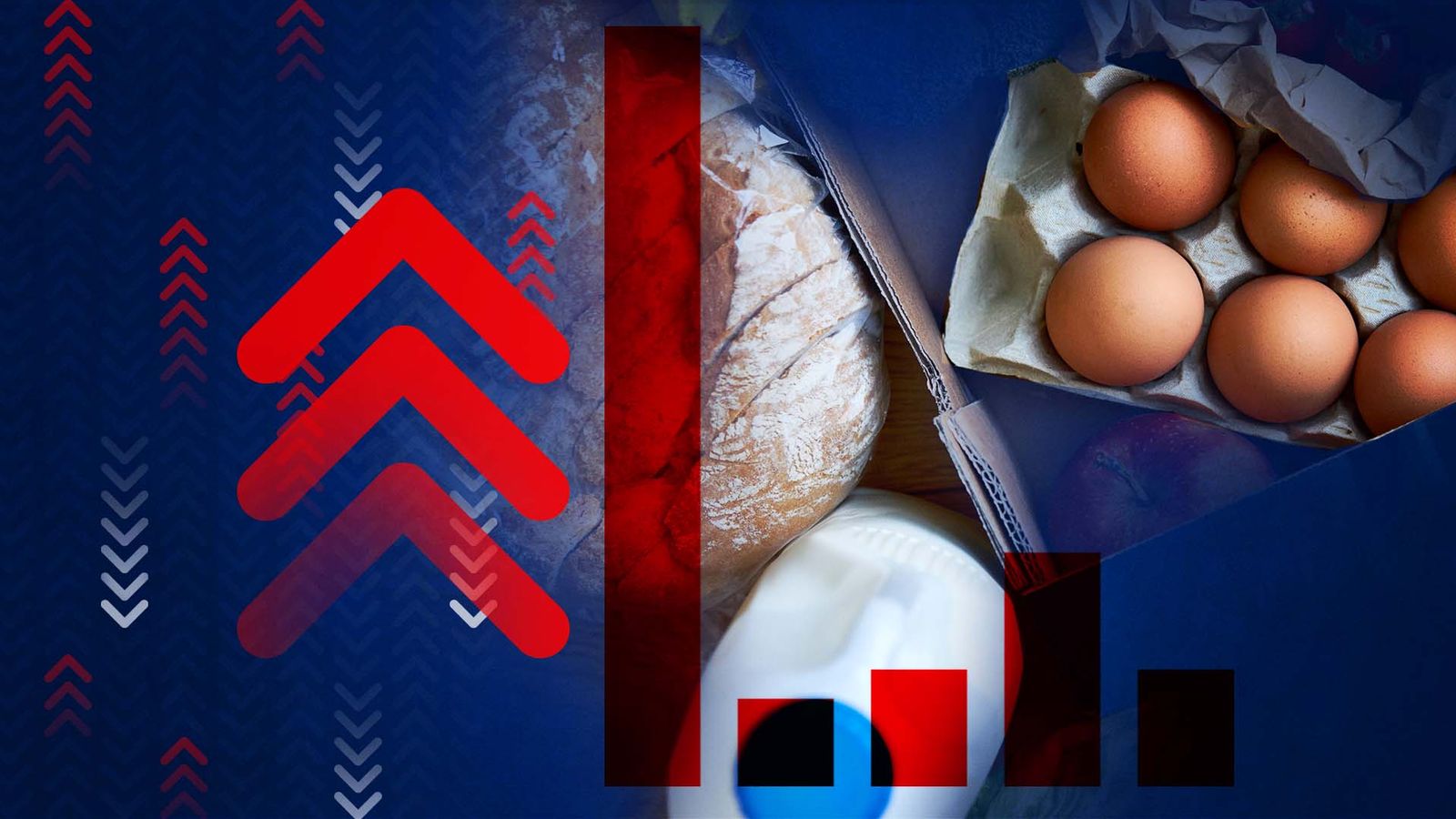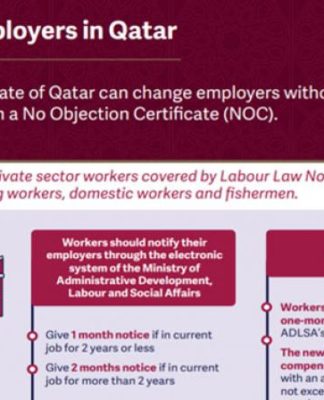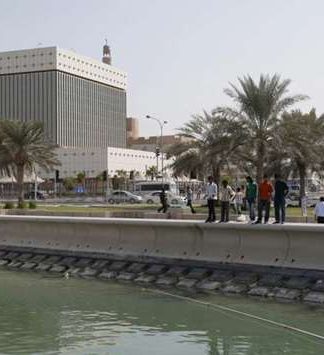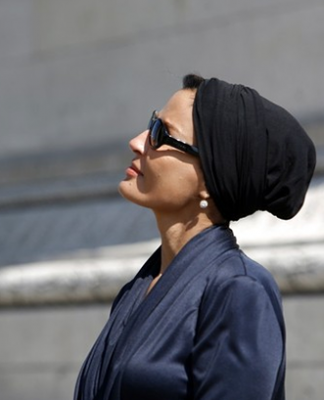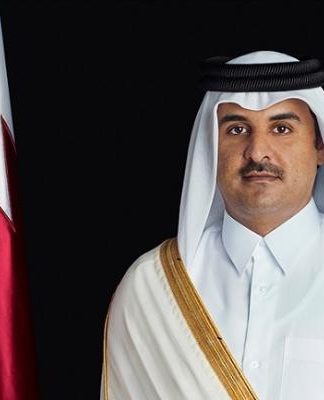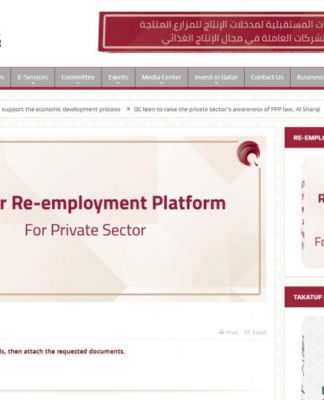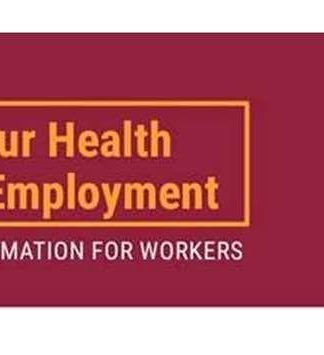Stubbornly high inflation increases pressure for interest rate hike
The cost of second-hand cars, flights, live music events and computer games kept the inflation rate higher than expected, despite the drop in petrol prices.
Sarah Taaffe-Maguire
Business reporter @taaffems
Wednesday 21 June 2023 15:54, UK
Listen to this article
0:00 / 5:18
1X
BeyondWords
Audio created using AI assistance
Jeremy Hunt reacts to latest inflation figures1:15
Play Video – Chancellor: ‘We need to be patient’
Chancellor: ‘We need to be patient’
Why you can trust Sky News
The rate of price rises has remained at 8.7% despite expectations of a fall, according to official figures.
The Office for National Statistics (ONS) announced the consumer price index measure of inflation stood at 8.7% in the year up to May, the same as the rate in April.
Inflation latest updates: One figure within data is ‘deeply worrying’ as predictions wrong again
A slight decrease, to 8.4%, had been expected by economists. It puts the government’s pledge to halve inflation this year in doubt.
The rate has been kept high due to the rising cost of second-hand cars, live music events and computer games, the ONS chief economist said, though they were partially offset by the fall in petrol prices. More expensive flights were also partially to blame, the ONS said.
As a result, interest rate projections have increased and the base rate is expected by investors to peak at 6% in March next year but could reach the new high as soon as December.
Investors now expect the Bank will maintain that high well in to next summer.
Paul Kelso on high inflation3:00
Play Video – ‘Sticky’ inflation explained
‘Sticky’ inflation explained
Read more:
Another Sunak priority in doubt as national debt reaches 100% of GDP
Jeremy Hunt rules out mortgage support and capping food prices
High interest rates mean more expensive borrowing with more costly mortgage bills likely.
The pain will come before rates reach the high as lenders price in the projections in to the products they have on the market. The interest rate on the average two-year fixed mortgage already reached 6.01% earlier this week.
Chancellor Jeremy Hunt said the government will make no policy changes in response to the news.
“Today’s figures strengthen the case for the government to stick to its guns, no matter what the pressure from left, right or centre, we won’t be pushed off course,” he said.
“We will not hesitate in our resolve to support the Bank of England as it seeks to squeeze inflation out of our economy, while also providing targeted support with the cost of living.”
INFLATION RATE RISES ARE TURNING INTO A STICKY PHENOMENON – AND THERE ARE A FEW OBVIOUS CONSEQUENCES
Ed Conway – Economics editor
Ed Conway
Economics & data editor
@EdConwaySky
Not good.
Not good at all.
The last few months of inflation data have had a dreary and repetitive rhythm to them.
Economists predict the rate at which prices are rising will finally begin to fall, and fast. Then the official data comes in and it turns out prices are not falling as fast as predicted. And then everyone gets depressed.
That pattern repeated itself today.
Read more
“If you look at what’s happening in other countries, you can see that rises in interest rates do bring down inflation over time, that will happen here,” Mr Hunt added.
There’s been an increase in another measure of inflation being watched by the Bank of England – core inflation, which excludes volatile categories including fuel and food.
That rise bucked expectations and now stands at 7.1%, a 31-year high and up from 6.8% last month. Not since March 1992 was the rate of core inflation so high.
It was forecast to remain stagnant at 6.8%.
Food price inflation
Food inflation came down slightly to 18.3% from 19.1% last month, the ONS said.
The Bank of England has undertaken a programme of interest rate rises to bring inflation down to 2% and Wednesday’s figure will be closely watched by rate-setters ahead of the latest expected rise on Thursday.
Click to subscribe to the Sky News Daily wherever you get your podcasts
Inflation began to increase in late 2021, when supply chain problems linked to COVID lockdowns and the associated worker shortages meant demand for goods could not be met.
Russia’s invasion of Ukraine exacerbated the problem as many countries, particularly those in Europe, scrambled to find other energy sources and reduce their use of Russian gas, which subsequently pushed up the cost of energy and many other goods.
Related Topics
Inflation
UK Economy






